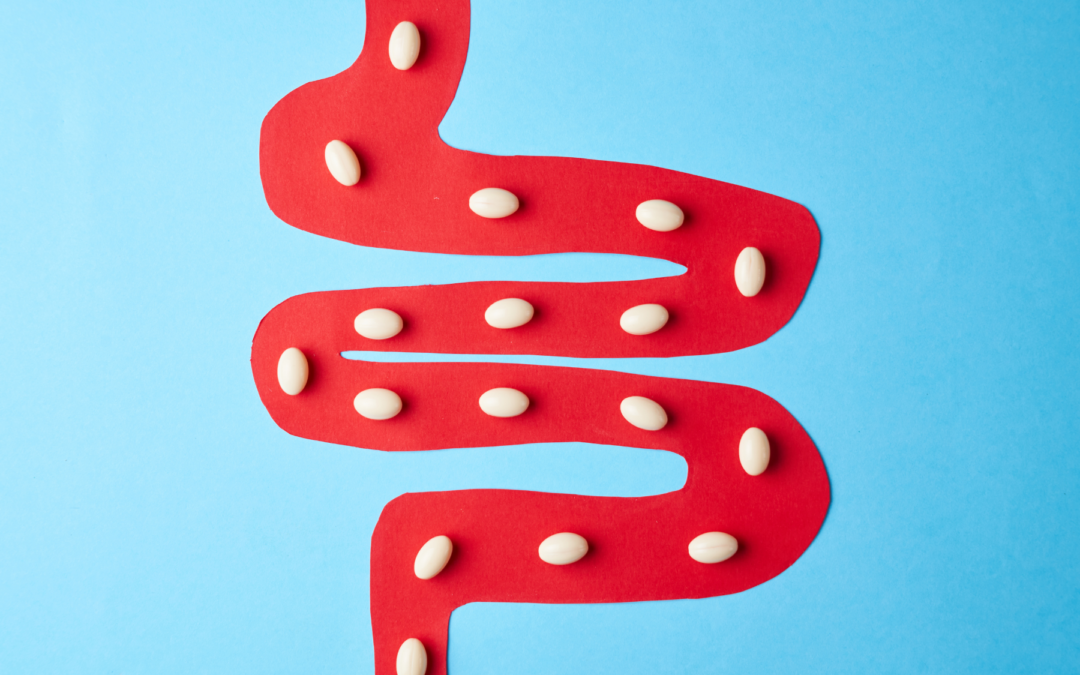While the word “diet” is often associated with weight loss, the specific carbohydrate diet (SCD) is not a weight loss plan, but a tool for helping manage SIBO symptoms. The SCD is just one of many dietary interventions used by healthcare professionals to help SIBO patients navigate their digestive issues. Despite their differences, all of these diets have a common purpose of restoring intestinal health to improve health outcomes for people who are struggling with SIBO symptoms. Read on to learn about some common signs of SIBO along with the science behind the SCD and which foods are to be included and avoided on this diet.
What is SIBO?
SIBO stands for small intestinal bacterial overgrowth and is characterized by a variety of digestive symptoms (1). These symptoms may include:
- Stomach discomfort or bloating, especially after meals
- Excessive flatulence
- Diarrhea and/or constipation
- Nutrient malabsorption, often resulting in deficiencies
- Unintended weight loss
- Nausea and vomiting, especially after meals
- Joint pain
- Fatigue
It’s important to note that these symptoms can also be associated with various other gastrointestinal conditions. If you suspect you have SIBO or are experiencing persistent digestive-related symptoms, it is recommended to talk with a healthcare professional.
The science behind the SCD
The SCD is designed to only be followed temporarily as it is very restrictive. For this reason, it must be done under the careful guidance of a dietitian to ensure nutritional balance.
The overarching goal of the SCD is to manage bacterial overgrowth. To accomplish this, the SCD removes most carbohydrates from the diet to “starve” the bacteria in the small intestine (2). Listed are three of the primary mechanisms that are behind the reasoning for use of the SCD:
Minimize “food” available for bacteria to feed on
By limiting specific carbohydrates that the bacteria feed on, the SCD reduces the nutrients that supply bacteria overgrowth (1,3).
Reduce fermentation
When carbohydrates aren’t able to be digested, they ferment and produce gas, leading to symptoms of bloating and stomach pain. Carbohydrates allowed with the SCD are more easily digested (1).
Decrease Inflammation
The SCD removes carbohydrates that are generally inflammatory and places more of a focus on probiotic-rich foods and some fats that may have anti-inflammatory effects. Additionally, the fermented foods allowed on the SCD can help support a healthy gut microbiota (1,3).
Foods to choose & remove on the SCD
CHOOSE
- Fruit (fresh/frozen and unprocessed)
- Nonstarchy vegetables
- Fresh or frozen meats and poultry
- Fresh or frozen fish (including tuna canned in water)
- Eggs
- Plant-based milk
- Ghee or grass-fed butter
- Hard cheeses (cheddar, for example)
- Homemade yogurt
- Most seeds, nuts, and nut butters
- Dried navy beans, lima beans, black beans, string beans, lentils, and peas cooked according to SCD rules
- Herbs and spices
- Honey
- All nut and seed oils
- Fermented foods
- Tea, coffee, sparkling water, fresh-squeezed juices
REMOVE
- Canned or dried fruit with additives
- Processed meats like cold cuts, hot dogs, bacon, sausages, chicken nuggets, dried beef, smoked meats, and Spam
- Starchy vegetables such as white and sweet potatoes, parsnips, and yams
- Canned tomatoes or tomato products
- Milk products (from animal sources) or margarine
- Soft cheeses including ricotta, goat cheese, feta, cream cheese, mozzarella
- Grains (pastas, bread, cereals, wheat, oats, quinoa, corn, rice, etc.)
- Flaxseeds, chia seeds, hemp seeds
- Canned beans, soy, chickpeas, pinto beans
- Balsamic vinegar, except homemade
- Any sweetener besides honey
- Soda, fruit juice from concentrate
- Candy or chewing gum
- Gums or preservatives
References
(1) Professional CC medical. Specific carbohydrate diet (SCD): How it works & benefits. Cleveland Clinic. Accessed March 5, 2024. https://my.clevelandclinic.org/health/treatments/23543-scd-specific-carbohydrate-diet.
(2) Suskind DL, Lee D, Kim YM, et al. The Specific Carbohydrate Diet and Diet Modification as Induction Therapy for Pediatric Crohn’s Disease: A Randomized Diet Controlled Trial. Nutrients. 2020;12(12):3749. Published 2020 Dec 6. doi:10.3390/nu12123749
(3) Obih C, Wahbeh G, Lee D, et al. Specific carbohydrate diet for pediatric inflammatory bowel disease in clinical practice within an academic IBD center. Nutrition. 2016;32(4):418-425. doi:10.1016/j.nut.2015.08.025







